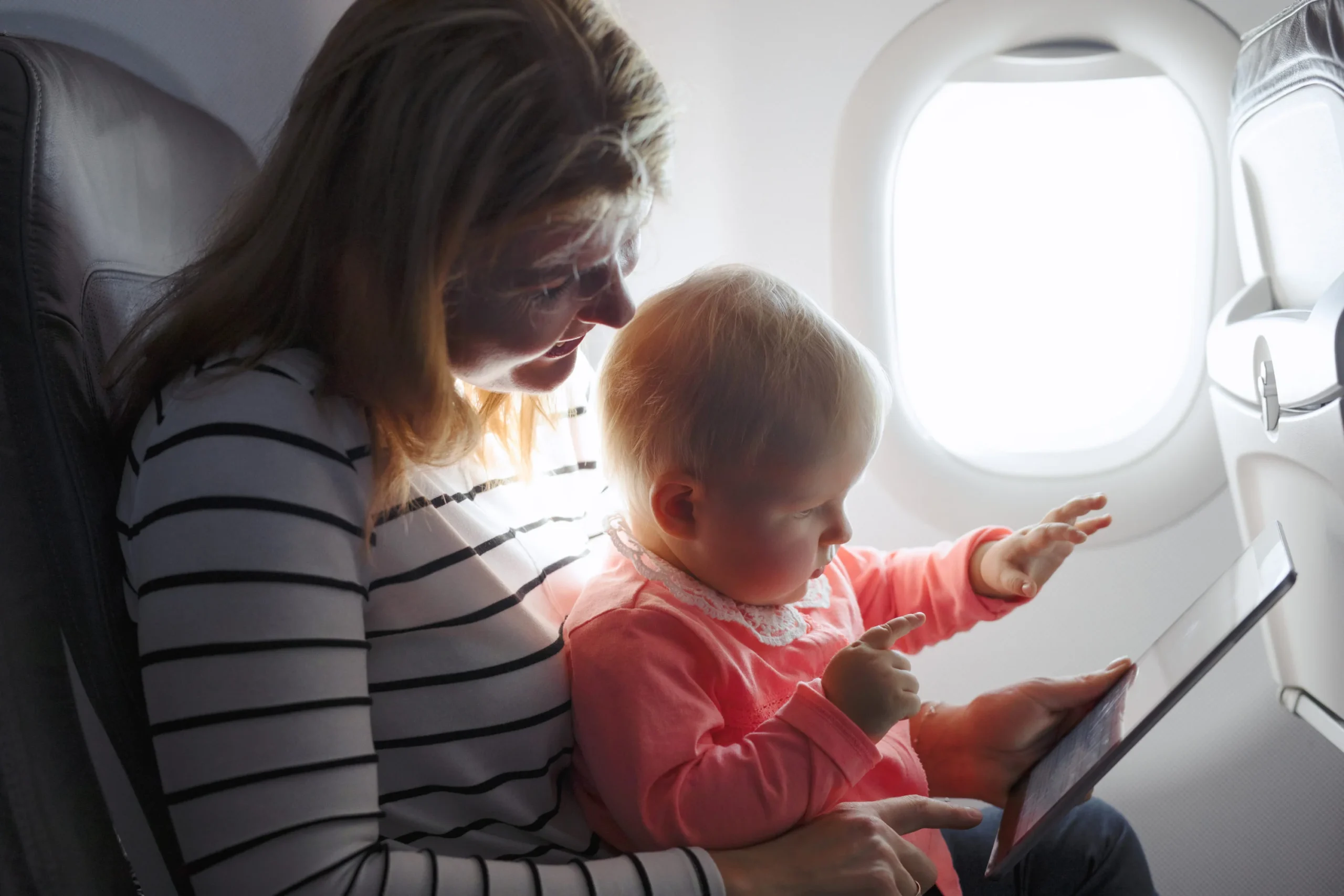Jet lag has deadly potential. Nobody enjoys lying in bed all day on vacation when you could be discovering something new and intriguing. Furthermore, we are all unprepared for international travel since a growing number of people are taking last-minute vacations to Europe and other destinations.
Traveling across time zones and enduring exhaustingly long flights can be difficult, regardless of where you’re going—to Europe, the Middle East, or Asia. After visiting the Middle East, Europe, and even Tokyo for two days recently, I believe I have the system down perfectly.
Jet lag affects people differently, so it’s not perfect, but these pointers have helped me get used to my new time zones more quickly when traveling and when I’m back home. When you take a trip overseas next, try out some of these tips for beating jet lag and discover which ones work best for you.
Take Off at the Appropriate Time
You are the most powerful factor when it comes to overcoming jet lag. The timing of your flight is crucial. When a flight is scheduled poorly, it can prolong the negative effects of jet lag by making it difficult to go to bed or remain up late. I like flights that take out in the dark and land as near to dawn as feasible. Alternatively, schedule flights to arrive right before bedtime, especially if they are returning home.
I find it simpler to get a decent night’s sleep after you’re on the plane when you leave at night. This enables you to arrive at your fascinating destination feeling rejuvenated and with your head in the proper place for your first full day. A fantastic alternative is to schedule your travel so that you reach your destination right before bed, even though it’s not fun to waste an entire day on the road. This will ideally help your body clock adjust to your new time zone so that you can sleep after a tiring day of traveling and wake up refreshed.
Start Adjusting ASAP
Though it’s a straightforward trick, it has great power. Everything revolves around becoming used to your new time zone well in advance of your actual arrival by kicking off the procedure as soon as humanly possible.
I set my watch to the time of my final destination as soon as I boarded the plane because of this. And I keep checking it, fooling myself into thinking I’ve already jumped to my new time zone. While it may still be daylight over here on the tarmac, it is already nighttime in Europe.
How to get over jet lag
Follow the digital clock on your watch. When bedtime arrives, or as near to it as possible, go to sleep. When morning arrives where you are going, get up. By doing this, you’ll begin acclimating to your new time zone well in advance of your arrival. That early advantage can be extremely beneficial, particularly when jumping across more than five time zones.
My flight from the Middle East last year left at a cruel one-hundred thirty minutes before dawn. I made myself stay up for an additional five or six hours, though, and at that point, it was about nine o’clock at home. Although it wasn’t simple—I’ll admit that I slept for almost an hour in there—that was the solution.
Utilize Melatonin
You might need assistance when your watch signals that it’s time for bed. You require melatonin. Unlike some other prescription or over-the-counter drugs, melatonin is an all-natural sleep aid that won’t lead to addiction. Although it’s something our bodies naturally make, taking a supplement or capsule with additional melatonin can help encourage your body to do so. Consequently, it serves a significant function in overcoming jet lag.
In addition, melatonin aids in the resetting of circadian rhythms, which are the body’s natural clocks that indicate when to wake up and go to sleep. Melatonin can therefore be an effective strategy when trying to get your body to adjust to the new time.
When it gets close to bedtime on an airplane, I take melatonin. But once I’ve arrived at my destination, including after my return travel, I take another melatonin at nighttime. I’ve found that using this dual strategy gives my body the extra support it needs to make the transition more quickly.
Spend more on business class
Sleeping on an airplane is a challenge for a lot of us. Furthermore, an uncomfortable flight might exacerbate the effects of jet lag on long-haul trips. Yes, it makes sense that sleeping and changing time zones are better while traveling in business class and having a lie-flat bed. This is not some great discovery.
That being said, this is the reason that a lot of travel websites, including ours, emphasize the importance of redeeming your points and miles for long-haul business class rather than for quick domestic trips. Getting some great sleep is made possible by the ability to turn your seat into a bed, prop yourself up with a luxurious cushion, and cover yourself with a duvet. The capacity to lie down is the main reason that business class is worth the extra money, even though the champagne, better meals, and amenity kits are all fantastic.
The lie-flat bed in business or first class is well worth every penny and mile if you have the points (or the money). It turns a lengthy flight from an exhausting leg of the journey you have to endure into an enjoyable portion of the journey, enabling you to arrive more rested and prepared to start exploring right away.
Drink plenty of water
Water is important to drink. After that, sip some more. Next, sip some more. And then one more glass, please. Dehydration is one of the main causes of jet lag, and flying at 35,000 feet dehydrates you. To lessen the effect, you should try to drink as much water as possible.
Airport water purchases are pricey, but they are worthwhile. And don’t be scared to ask for another cup by stopping your flight attendant or by using the call button. Staying hydrated is crucial. Having said that, avoid consuming excessive amounts of alcohol or coffee while flying. As a general rule, I try to drink at least one cup of water—if not more—for each alcoholic beverage I consume while flying.
Select the Proper Aircraft
Naturally, you must drink water while flying. As for the water in the air, what can I say? Over an extended flight, the majority of airplanes experience fatigue due to their extreme dryness. Your body must also be properly hydrated.
A major reason why frequent passengers adore the Boeing 787 Dreamliner and Airbus A350 is because of this. Compared to older jets, these aircraft can introduce significantly more moisture into the cabin because of their composite construction. These planes also have more pressurized cabins, which contributes to the overall feeling of comfort.
I didn’t think these planes would live up to the excitement. But I’m sold after flying a few times in both these modern and more traditional aircraft, such as Boeing 777s. If you want to get off the plane feeling more hydrated and adjusted, go for these particular aircraft.
Make yourself stay awake
Come on, let’s be real. We both know that your little snooze will soon become a deep sleep and that when 3 a.m. rolls around, you’ll be wide awake and confused about where you are. Eventually, the secret to overcoming jet lag is to simply endure it once you’ve arrived. Your chances of acclimating to your new time zone will exponentially increase if you can remain up until a regular bedtime in your new location. Step outside and enjoy the sunshine and fresh air. Take four coffees. Try your hardest to remain awake.
Creating schedules that compel you to stay up later than your body desires is my particular favorite. A few years ago, we traveled to Spain, spending over twenty hours in automobiles and aircraft before reaching Barcelona and falling asleep. But even though we knew we would have to stay up later that night, we arranged plans with an expat buddy. Include these must-do activities in your first-day schedule to avoid being the life of the party, whether it’s a cuisine tour or a dinner reservation. It will be appreciated by your body clock.

